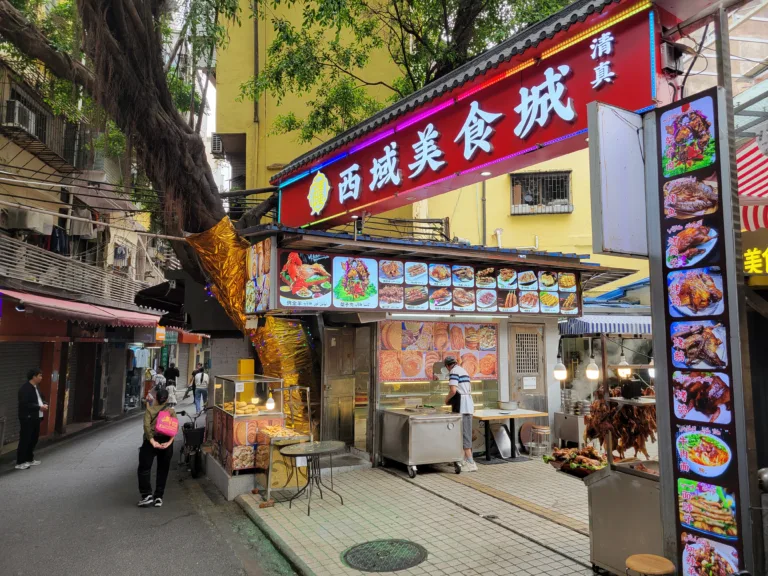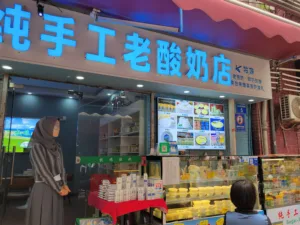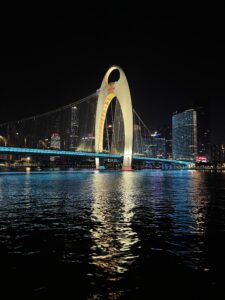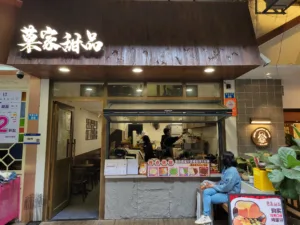Baohan Road is just on the other side of the railway tracks from Xiaobei metro station. It takes a 5 minute walk from the station.
Note: You can download either Baidu Maps or Amap and navigate through the buttons below. You can also directly order a taxi through the App. Learn more in this Guide.
Muslim Community in Guangzhou
Baohan Straight Street in Guangzhou, will make you feel like you’ve entered a place somewhere in the middle east or Africa. And that right in the heart of China. Known as “African Street” or a bit inappropriately called “Chocolate City,” this short lane in Yuexiu District has become a major hub for African-Chinese trade and cultural exchange. What started in the 1990s with a few West African traders has grown into one of Asia’s most unique immigrant enclaves. Today, Baohan Street is packed with over 200 shops offering everything from West African groceries and halal meats to electronics and fashion, all amid a mix of English, French, Arabic, and Mandarin. Traders from Nigeria, Mali, Ghana, and more come here to buy Chinese goods. Mainly clothing, electronics, shoes and more in bulk. Most ship them directly back to booming African markets. At its peak, over 30–40% of China’s African import-export traders passed through Guangzhou annually, with Baohan as the front door.
But this street is not just a marketplace but more a cultural bridge. Chinese Muslim vendors (Hui and Uyghurs) originally set up halal shops in the area, drawing African Muslim traders looking for familiar food and faith spaces. Over time, the mix of African, Arab, and Chinese cultures gave rise to an unexpected multicultural pocket in southern China. You can find Nigerian diners serving spicy jollof rice beside Uyghur naan stalls, hair braiders chatting with clients in French, and local Chinese shopkeepers greeting African regulars in fluent pidgin English. Some Africans have married locals and built families here; others live as long-term residents and community anchors. Though the community has faced challenges, the heart of “Little Africa” beats on. Baohan Street remains a symbol of global trade from the bottom up, showing how grassroots entrepreneurship and human connection can turn a side street in Guangzhou into a crossroads of continents.








